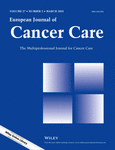Update of the recommendations of the Italian Society of Medical Oncology on vaccination for seasonal influenza and pneumococcal infection in patients with cancer: Focus on prevention of pneumonia
We have revisited and updated our guidelines on influenza vaccination for patients with cancer (Pedrazzoli et al., 2014) including also the risk of pneumonia, which represents a serious complication of influenza infection and the leading infectious cause of hospitalisation. In particular, Streptococcus pneumoniae is a major source of morbidity and mortality globally, causing life-threatening diseases, including pneumonia, meningitis and sepsis. The risk to die within 30 days for patients with pneumonia and any comorbidity has been reported 3.4 times higher than for patients without comorbidities, the highest relative death risk among patients with solid tumours (especially lung cancer) (Backhaus et al., 2016). The high incidence and mortality among elderly and patients with cancer or comorbidity such as chronic obstructive pulmonary disease, cardiovascular diseases, diabetes and other chronic medical conditions, make pneumococcal conjugate vaccine (PCV) a high priority, provided immunogenicity can be shown in these subjects. Routine PCV is recommended for infants, the elderly and individuals with chronic comorbidity. Immunisation programmes proved to be effective in reducing the deaths due to all-cause pneumonia as well as in pneumococcal hospitalisations (Nair et al., 2016). In addition, the availability of new PCVs protecting against more serotypes minimises the concerns that serotype replacement might erode the gains in a longer time scale especially in adult risk groups.
We recommend PCV, along with influenza vaccination, in patients with cancer. More frequent in immunocompromised subjects, including patients with cancer, the incidence of pneumonia is reduced in prior receipt of influenza vaccination (Grijalva et al., 2015). Pneumococcal conjugate vaccine can be safely administered in association with flu vaccination and provides a long-term protection following a single administration (Frenck et al., 2016).
As for influenza vaccination, PCV may have a suboptimal serologic response in patients with disease- or treatment-related immunosuppression, which underline the need for reliable baseline data before vaccination is started.
Quadrivalent influenza vaccine is currently available. It is designed to protect against four different flu viruses (two influenza A strains and two influenza B strains) thus giving broader protection against circulating influenza viruses. Quadrivalent flu vaccine has to be preferred over the trivalent one, and guidelines have been modified consequently. On the other hand, the Center for Diseases Control advises not to delay getting a trivalent flu vaccine in case a quadrivalent vaccine is unavailable (https://www.cdc.gov/flu/protect/vaccine/quadrivalent.htm).
Previous recommendations did not suggest whether and for how long subject not undergoing antineoplastic therapy should receive vaccination for seasonal influenza. Available data do not provide information on this issue. We suggest that for patients with a follow-up longer than 5 years after curative treatment and for patients who have tumour resection not requiring additional treatments, flu vaccination should or should not be considered based on the recommendations for the general non-cancer population.
Revisited recommendations are reported in Table 1.
| Statements | Updated |
|---|---|
|
Influenza vaccination in patients with cancer is safe, minimally invasive and inexpensive It should be widely utilised in patients with cancer both untreated and receiving active therapy, including biologic agents. The ideal time to administer the vaccination during a treatment cycle is unclear. For disease-free patients >5 years following active treatment and patients who have surgery not requiring additional treatment, flu vaccination should be considered according to recommendations for non-cancer subjects |
Yes |
| Vaccination of household contacts and healthcare personnel is highly recommended as it bears significant implications in increasing the level of herd immunity in the microenvironment with consequent reduction in influenza virus circulation and likelihood of infection | No |
| Strict preventive measures should be adopted in oncology wards in the presence of hospitalised patients who develop influenza-like illness | No |
| Quadrivalent inactivated vaccine should be preferred due to the broader protection against circulating virus strains. However, in case of unavailability of quadrivalent vaccine, it is advised to vaccinate with trivalent vaccine rather than delay vaccination | Yes |
| Cancer patients treated with rituximab-containing regimens have persisting perturbations of B-cell compartments and an impaired immune response to influenza vaccine, but also to other common vaccines. Thus, special efforts are needed to improve preventive/therapeutic strategies for these refractory patients, including prophylactic antivirals | No |
| Pneumococcal conjugate vaccine (PCV) reduces the risk of pneumonia in patients with cancer and such benefit is greater in prior receipt of influenza vaccination. PCV can be given safely in conjunction with flu vaccination | Yes |
| Prospective randomised controlled trials to better define the serological response and the clinical benefits of influenza vaccination are needed in this patient population | No |
FUNDING INFORMATION
This work was supported by grants from the Italian Ministry of Health (Ricerca Finalizzata-2011-02351315) and Fondazione IRCCS Policlinico San Matteo (Ricerca Corrente).




